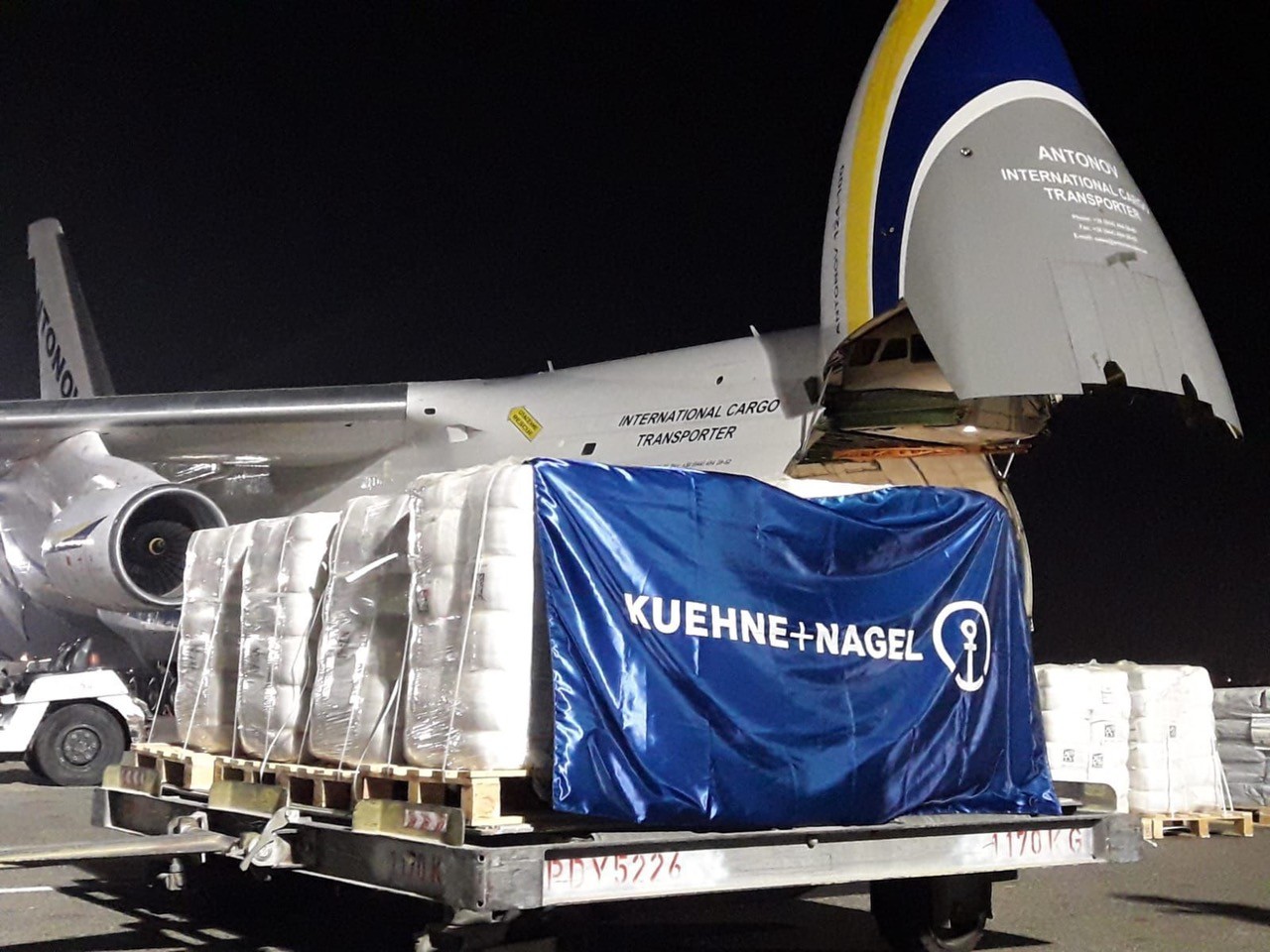The logistical challenge of the Ukraine crisis relief effort
11 / 04 / 2022

Source: Kuehne+Nagel
The refugee crisis created by the conflict in Ukraine has dominated the headlines and in response there have been an array of aid shipments to countries bordering Ukraine, but the Humanitarian Logistics Association (HLA) warned that this approach needs careful thought.
Sarah Schiffling, senior lecturer in supply chain management at Liverpool Business School and a trustee of not-for-profit, HLA explained that too many donations can clog up the relief effort.
“Where donations are unsolicited and uncoordinated it can create a burden on the relief effort, and our guidance is intended to assist those seeking to donate and ensure their efforts do not go to waste,” said Schiffling, who previously worked for Kuehne+Nagel.
“In Ukraine right now, there is a shortage of certain medical items, but these are not owned by the public and must be ordered from specialist suppliers. Monetary donations remain the most efficient way to help.”
The HLA, which provides support and connections for people working in logistics functions, is trying to focus on local procurement.
“One of the things we are focused on is local procurement, particularly in light of Covid, so do we need to use this old-fashioned aid model of packing a big airplane in the US or Europe and sending it to the hotspot of the moment?
“Can we invest more in buying locally and supporting local economies so maybe we don’t need to be flying plastic buckets around the world because in most countries we can buy plastic buckets somewhere.”
Shipping large quantities of second hand clothes to disaster zones can also have the unintended consequence of damaging the local retail sector.
“If people get clothing for free why would they go to a shop and buy clothes?” Schiffling asked.
She added: “Any logistician will know that you need a consignee to receive it and who is expecting a particular shipment at this particular time rather than showing up randomly with a lorry load of donations.
“Have they got the warehousing space and distribution structure? Unfortunately a lot of things do not get distributed and it is very difficult to match up supply and demand.
“There is a lot of waste and a lot of things do not reach the people in need.”
The other big consideration is to make sure that what is being collected and shipped out actually meets the needs of the intended recipients.
Schiffling said completely inappropriate items like high-heeled shoes often turn up in humanitarian donations.
Time delays can also mean that well-meaning donations arrive too late.
“If people hear that refugees in say Romania need warm socks then they start their local primary school collecting socks,” says Schiffling.
“But in two weeks by the time the collection has finished things will have moved on and a major retailer might already have sent lorry loads of surplus stocks of winter socks.”
The HLA is urging people who want to help to raise cash for organisations such as the Disaster Emergencies Committee (DEC) rather than collect and send donated items.
This speeds up the process and supports the local economy by, for example, buying warm socks locally instead of transporting them thousands of miles.
There has been a shortage of heavy lift aircraft such the Antonov AN-124 but one has been supplied for the Ukraine relief effort by Kuehne + Nagel to fly aid from the UAE into Poland.
“It is great to have the Antonov because of its sheer capacity,” says Schiffling. “Very often in a humanitarian crisis there is the issue of the ease of operating and not needing specialist equipment to load and unload.
“It is great to see pictures of those massive planes in the media but we are not seeing a shortage just yet.”
While there is no immediate requirement for road transport on the Ukrainian border as yet, Schiffling urged logistics firms not to forget about the problems the country will face once the conflict is over and the headlines move on to another news story.
“If somebody is eager to help, give it some time because this is going to take time and to have a sustained response can be difficult,” she said.
Aid agencies are always looking for skilled logistics professionals willing to volunteer in disaster areas but Schiffling urged people not to jump on a plane and turn up expecting to be welcomed with open arms.
“The Red Cross for example has a roster so if you want to volunteer and help you can get onto a roster,” she said.
“When there is a need for logisticians in a particular area you can go on a rota which also ensures continuity.
“It might be a great thing to take two weeks annual leave and go out to help – but what happens after those two weeks? Is that warehouse you were running just going to sit empty?”
Schiffling also urged people not to focus entirely on Ukraine as other long-term humanitarian crises around the world have not gone away.
“Yes a lot is still needed there but there are a whole bunch of other crises as well – Yemen, South Sudan, a developing famine in parts of Kenya and Somalia, Myanmar… there are lots of things happening all over the globe.
“The huge worry is that Russia and Ukraine are big providers of food and if that drops away then food aid for people in crisis is going up in price.”
The HLA has created a Ukrainian response page to provide more information on what people in the logistics sector can do.
This includes a link to Logistics Aide Ukraine, an online forum where people with donations can request transport.
The association has also launched an awareness campaign with its Lyon-based corporate member Bioport to assist those wishing to donate to the Ukrainian refugee crisis.
The new guidance gathers the latest best practice from a range of sources to ensure the right donations get to the right people at the right time.















